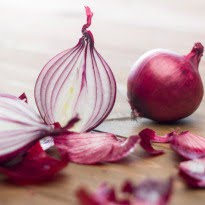
Summers are here and so is the season of mangoes. Known as the ‘king of fruits,’ mango is a delightful and refreshing fruit that helps us cool down during the hot summer months. I remember those good old days from my childhood when my sister and I used to compete with each other and wolf down all the mangoes stocked in the fridge. So succulent, flavourful and pretty to look at that we forget that they are also healthy. Talking about mango’s nutrition value, our beloved fruit offers a healthy dose of vitamins, minerals and enzymes that are beneficial for our health. And that’s not it, the mighty mango is a great high-fibre and high-antioxidant food too. According to the book, ‘Healing Foods’ by DK Publishing, mangoes are high in the antioxidants beta-carotene and vitamin C, and are good for boosting the immune system, protecting eyesight, and also help in keeping indigestion at bay. Moreover, they also help neutralise free-radical damage in the body. So, before you grab a cookie, consider eating a mango instead. Here are some health benefits and nutritional facts of mangoes that should know.
Mango Nutrition: Mango Health Benefits You Must Know
1. Improves Digestion:
Mangoes play an important role in reducing problems like indigestion and excess acidity. Mangoes comprise digestive enzymes that are known to promote natural, efficient digestion. These enzymes aid the breakdown and digestion of protein and fibre. The dietary fibres present in mangoes have many long-term benefits, which help in lowering the risk of many lifestyle diseases like type 2 diabetes, heart diseases and diverticular diseases.
(Also Read: 8 Incredible Benefits of Mangoes, The King of Fruits)

Mango Nutrition: Mangoes comprise digestive enzymes that promote efficient digestion
2. Maintains Eye Health:
Mangoes are rich in beta-carotene, which is a powerful antioxidant known to reduce the effects of free-radical damage in our body, including eyes and the skin. Moreover, mango supplies the minimum requirement of vitamin A to our body, which promotes good eyesight, prevents night blindness and dry eyes.
3. Boosts Immunity:
Consuming mangoes fulfill the requirement of vitamin C and vitamin A in our body and keep the immune system healthy and strong. Vitamin C helps to reduce the incidence of cold and flu, whereas vitamin A gives us additional protection against the free radicals harming our internal systems.
(Also Read:12 Interesting Mango Facts Even The Non Mango Lovers Would Enjoy!)

Mango Nutrition: Mangoes are good in vitamin A, which promotes good eyesight
4. Anti-Ageing Properties
Mangoes can help slow down the process of natural ageing; all thanks to vitamins A and C that are present in high amounts in mangoes. These vitamins help produce collagen proteins within the body that are known to slower the process of skin’s natural ageing by protecting blood vessels and bodily connective tissue.
Mango Nutrition Facts: Key Vitamins, Nutrients and Minerals In Mangoes
Dietary Fibres In Mango:
It is known that fibre plays an important role for weight loss and mangoes are rich in fibre. There are 1.6 gm of dietary fibres per 100 gm of serving. Consuming mangoes will keep your hunger pangs at bay. But, remember moderation is the key.
Water In Mangoes:
In summers, it is very important to keep yourself hydrated. Water keeps us hydrated and full, therefore, drinking water or food sources with high water content prevents dehydration, plus keeps us full for a longer time, meaning averts us from munching unhealthy things from time to time. Mangoes contain about 83.46 g of water per 100 gm serving.
(Also Read:Is Eating Mangoes Healthy?)

Vitamins In Mango:
Mangoes are packed with vitamins like A, C, and K. While, good levels of vitamin K are beneficial for our bone health and vitamin A promotes good eye health. Mangoes comprise 36.4 mg of vitamin C, 4.2 microgram of vitamin K and 1082 IU per 100 gm serving. Mango is one of the highest food sources of vitamin C. This vitamin is essential for your immune system.
Here is a complete mango nutrition chart that will convince you to load up on the tropical fruit.
The figures are according the United States Department of Agriculture. A 100 gm of mango contains:
| Nutrient | Unit | Value per 100 g |
|---|---|---|
| Water | g | 83.46 |
| Energy | kcal | 60 |
| Protein | g
|
[“Source-tfood.ndtv”]










